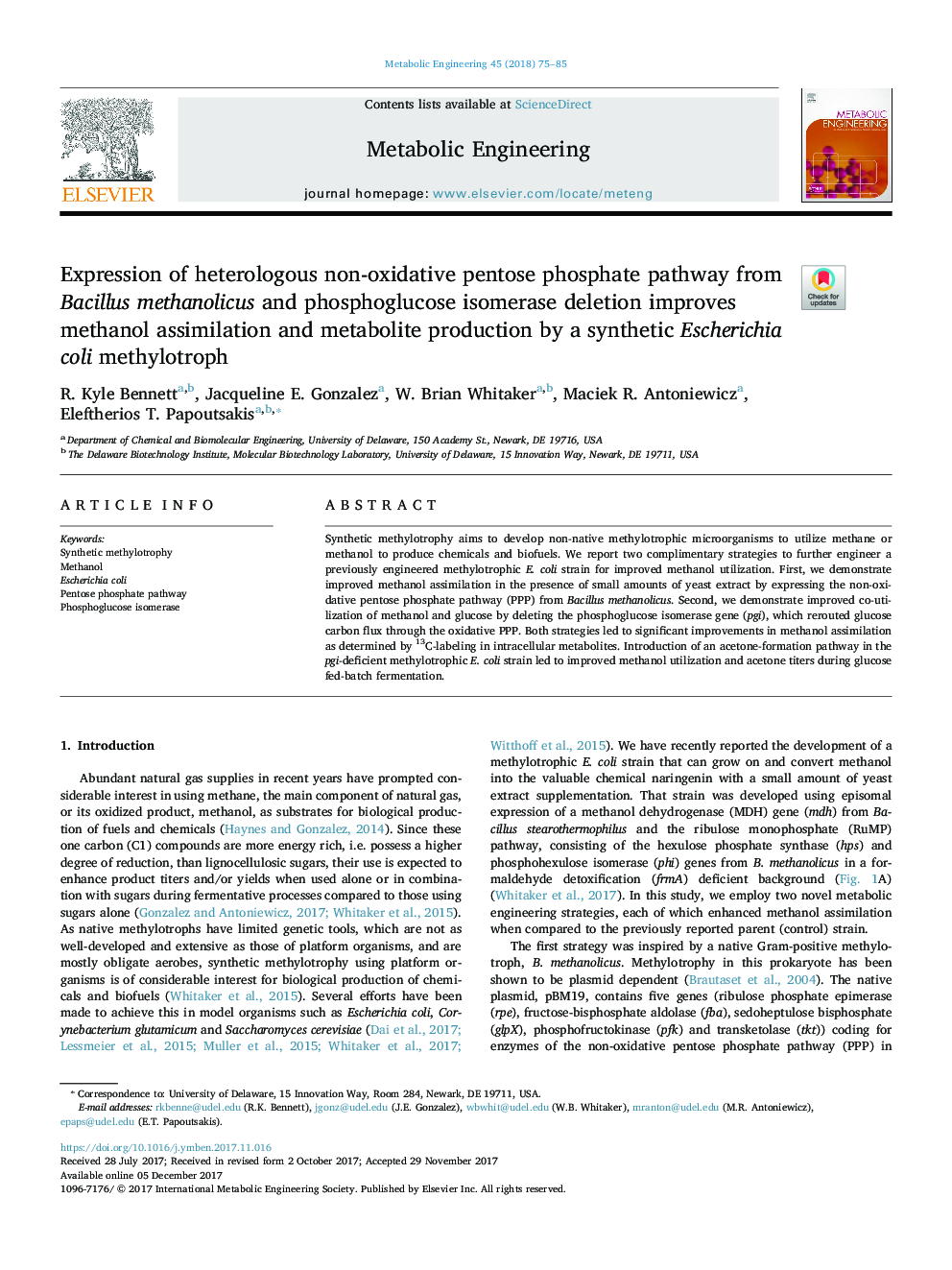| Article ID | Journal | Published Year | Pages | File Type |
|---|---|---|---|---|
| 6494128 | Metabolic Engineering | 2018 | 11 Pages |
Abstract
Synthetic methylotrophy aims to develop non-native methylotrophic microorganisms to utilize methane or methanol to produce chemicals and biofuels. We report two complimentary strategies to further engineer a previously engineered methylotrophic E. coli strain for improved methanol utilization. First, we demonstrate improved methanol assimilation in the presence of small amounts of yeast extract by expressing the non-oxidative pentose phosphate pathway (PPP) from Bacillus methanolicus. Second, we demonstrate improved co-utilization of methanol and glucose by deleting the phosphoglucose isomerase gene (pgi), which rerouted glucose carbon flux through the oxidative PPP. Both strategies led to significant improvements in methanol assimilation as determined by 13C-labeling in intracellular metabolites. Introduction of an acetone-formation pathway in the pgi-deficient methylotrophic E. coli strain led to improved methanol utilization and acetone titers during glucose fed-batch fermentation.
Related Topics
Physical Sciences and Engineering
Chemical Engineering
Bioengineering
Authors
R. Kyle Bennett, Jacqueline E. Gonzalez, W. Brian Whitaker, Maciek R. Antoniewicz, Eleftherios T. Papoutsakis,
